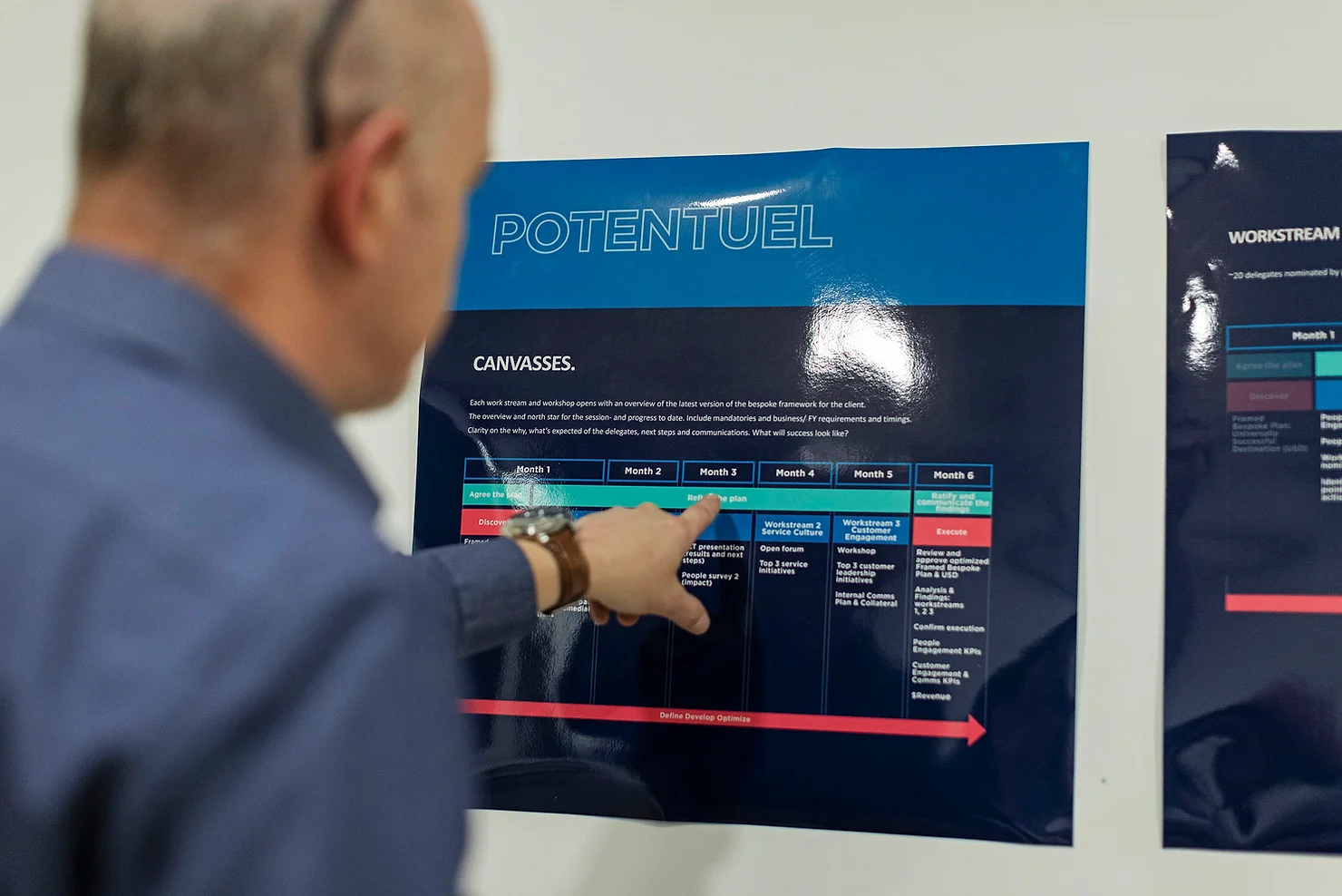Do we have a Covid hangover?
See our work
The fallout from the pandemic continues to make headlines. From the big resignation, which reportedly saw 25 million Americans leave their jobs in the second half of 2021, to a large UK study of work happiness that found 36 per cent of people are unhappy in their jobs.

The fallout from the pandemic continues to make headlines. From the big resignation, which reportedly saw 25 million Americans leave their jobs in the second half of 2021, to a large UK study of work happiness that found 36 per cent of people are unhappy in their jobs.
Unprecedented was named word of the year in 2020, and it certainly feels like things are changing in giant leaps rather than the baby steps we have become accustomed to over the last couple of decades.
Long term trends have been accelerated. One is digital transformation, which has seen companies advance their digital plans by seven years. Another is work-life balance. Offices saw a proliferation of chill-out rooms before the pandemic, and flexible working was making headway. But home working through lockdowns provided a powerful usage case for employees and bosses. It became a win-win. Companies can cut the costs of running large offices, and employees save the costs of commuting and gain time back in their days.
As the economy recovers, it is seeing skills gaps emerging across a wide range of sectors. In some industries, the war for talent is driving greater flexibility, four-day weeks and unlimited holidays. For traditional office-based jobs, it seems ‘work’ is increasingly task-based, where time and location are no longer in the equation.
Employers have to redefine their relationships with employees in this brave new world. A happy, motivated, and engaged workforce is created with a shared belief and understanding that they are all working toward a collective objective.
Talented people want to actively contribute to their enterprise’s mission, vision, innovation, and commercial success. And the people best positioned to solve business challenges are those closest to the processes and experiences that most need improvement.
Unlocking this potential in a business-like way needs to be the priority. To help companies achieve this goal, Potentuel has created the Universally Successful Destination model where everyone can align their own desires and goals with the wider business. Effectively aligning their stars to an end goal where everyone wins.

For the people who perhaps seem now not to care or do not want to see how their work contributes and could be more meaningful the model is pragmatic enough to accommodate by proactively involving them and surfacing their accumulated customer experience, understanding of company process, good ideas or at worst allowing them to vent their frustrations. Experience shows the most cynical can often surprise – and the pragmatic balancing of all people in joint pursuit of a shared end goal is core to the Potentuel model.
When you have a team that understands what success looks like for them and for the team, they are a part of, they can work collectively and boost performance. It creates a win for the individual, the business and the customer.
It goes beyond the mantra of a mission statement, which often lacks emotional and rational connections. A universally successful destination embraces the diversity of the individual and their talent and aligns everyone’s power in such a way to scale human abilities exponentially.
As work becomes more task and results orientated, everyone must understand their ‘why’ and have the freedom to work out their own ‘how’. Equally ensuring that the newly empowered people understand their responsibilities and the business priorities. They will reciprocate with their everyday actions.
Servant leadership
Empowering teams to lead requires a new approach from management. The whole leadership team must recognise that people are the most valuable asset and primary source for future success and competitive advantage. It requires humility, inspiration, and empathy to listen and be prepared to change. The leadership team must then demonstrate that they are keen to enact the new ideas.
There is a clear benefit to the customer. By connecting a company’s culture and its people directly to the customer, it will create a closer and more immediate relationship. Barriers to purchase decisions will be removed, and loyalty will be boosted.
Quantitative data should be combined with qualitative and psychographic insight to reveal how customers feel and how their emotional view of the world has changed. When delivered in a business disciplined framework, it ensures change is delivered immediately.
The programme of change is aligned with the financial year, customer needs and a continuous right to left view of the universally successful destination, then talent engagement and unlocking people potential can be the critical driver of long-term growth.
Business leaders have a lot on their plate. There is no playbook to manage the challenges of recovering from a global pandemic. Load on top climate change, an energy crisis, digital transformation, and geopolitical issues that range from Brexit to the Ukraine crisis. It is clear that flexibility and resilience will define the winners of the next decade.

The legendary Peter Drucker said, ‘The greatest danger in times of turbulence is not the turbulence—it is to act with yesterday’s logic’. A new approach is available that will equip businesses with the tools they need to thrive in these uncertain times.
